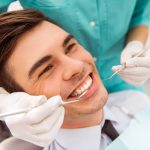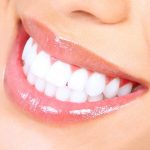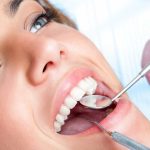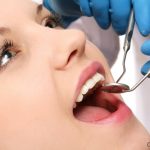Reddit’s Guide: When to Eat Solid Food After Wisdom Teeth Removal
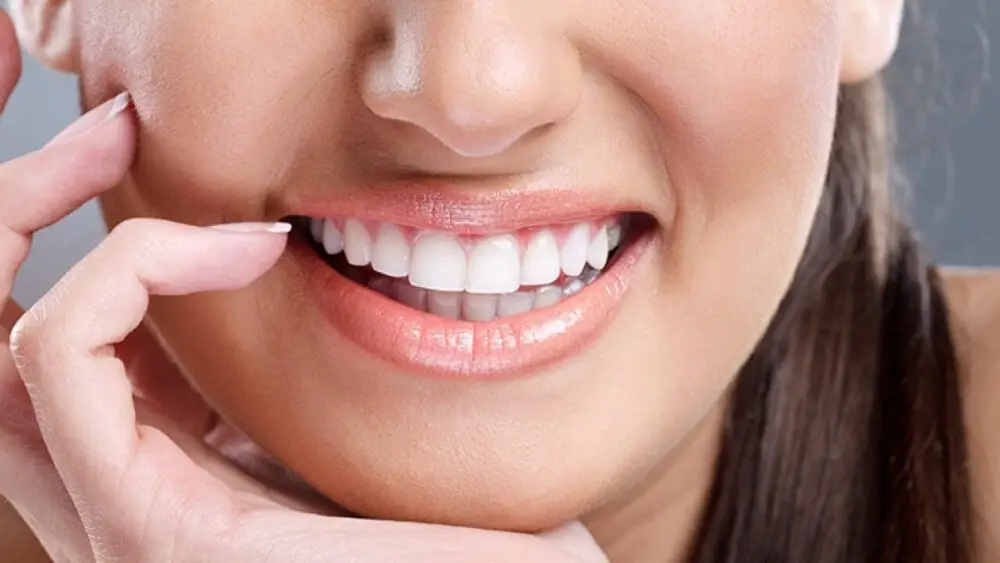
Wisdom teeth removal is a common dental procedure that many people undergo at some point in their lives. However, the recovery process after the procedure can be quite challenging and requires special attention. One of the most critical aspects of post-operative care is the timing of when to start eating solid foods again. While it may be tempting to indulge in your favorite foods immediately after the procedure, it is essential to follow the recommended guidelines to ensure a smooth recovery process. Reddit, the popular social news aggregation and discussion website, has become a go-to platform for advice on various topics, including dental care. Many users have shared their experiences and tips on how to handle the recovery process after wisdom teeth removal. In this guide, we will delve into some of the insights shared by Reddit users on when it is safe to start eating solid foods and what foods are best to eat during the recovery process. By following these tips, you can ensure a speedy recovery and get back to enjoying your favorite foods in no time.
Wisdom teeth removal surgery is a common dental procedure that involves the extraction of one or more of the third molars at the back of the mouth. This surgery is usually performed to alleviate pain, prevent infection or damage to other teeth, or to create space for orthodontic treatment. After the surgery, patients may experience some discomfort, swelling, and bleeding, and they may need to adjust their eating habits for a few days. Soft, cool, and easy-to-chew foods are recommended during the first few days after the procedure, such as smoothies, mashed potatoes, soup, and yogurt. Patients should avoid hard, crunchy, and spicy foods, as well as hot drinks and alcohol, as they can irritate the surgical site and slow down the healing process. By following the post-operative instructions provided by their dentist or oral surgeon, patients can recover quickly and resume their normal eating habits within a week or two.
Following postoperative instructions is crucial for a quick recovery after any surgical procedure, including wisdom teeth removal. These instructions are designed to help patients manage pain, prevent infection, and promote healing. Failure to follow these instructions can lead to complications, such as dry socket or delayed healing. In the case of wisdom teeth removal, one important instruction is when to start eating solid foods again. As tempting as it may be to indulge in your favorite crunchy snacks, it is crucial to wait until your mouth has fully healed to avoid damaging the surgical site. By following postoperative instructions, patients can ensure a smooth recovery and avoid any unnecessary complications.
Understanding the Healing Process
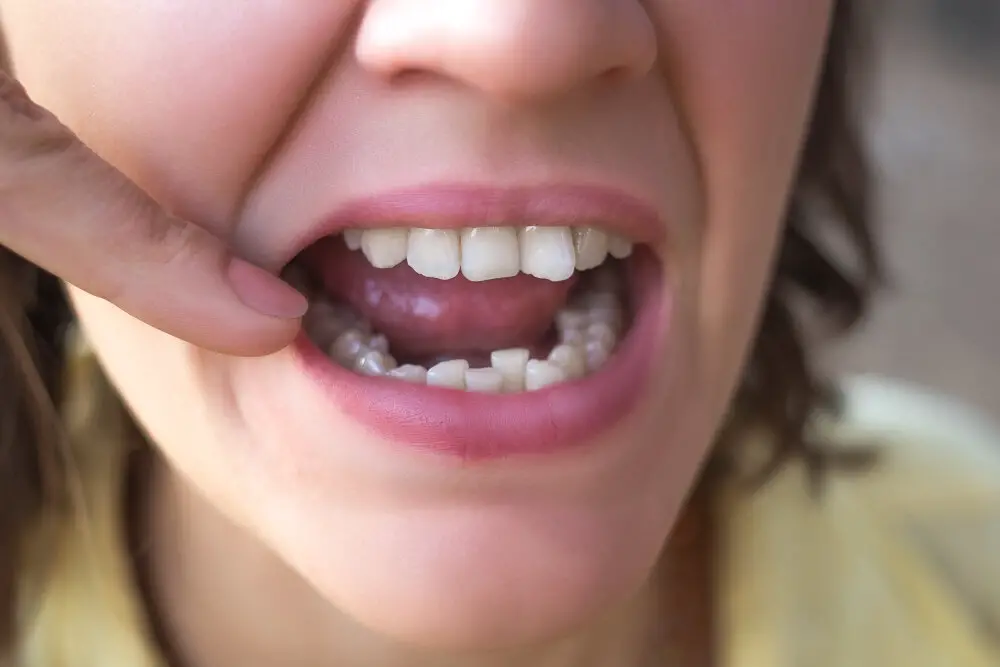
After having wisdom teeth removed, it is crucial to understand the healing process to ensure a smooth and speedy recovery. The healing process involves several stages, and it is essential to follow the recommended aftercare instructions to aid in the healing process. The initial stage of healing involves the formation of a blood clot in the extraction site. This blood clot acts as a protective barrier, preventing bacteria from entering the wound and promoting healing. It is crucial to avoid dislodging the blood clot by abstaining from smoking, spitting, or using straws for the first few days after surgery. After the blood clot has formed, the next stage of healing involves the growth of new tissue and bone in the extraction site. During this stage, it is crucial to maintain good oral hygiene by gently brushing and rinsing your mouth with saltwater. It is also important to eat soft foods that do not require excessive chewing to avoid putting pressure on the extraction site. As the healing process progresses, the swelling and discomfort should gradually subside. It is important to follow up with your dentist or oral surgeon to ensure proper healing and to address any concerns or complications that may arise.
After wisdom teeth removal, the healing process begins immediately. The first few hours after surgery, the patient will experience some bleeding, swelling, and discomfort. The bleeding should stop within a few hours, and the swelling should begin to decrease within a few days. The patient should avoid solid foods for at least the first few days and stick to a soft and cold diet to prevent any damage to the healing tissues. As the healing process progresses, the patient can slowly introduce solid foods back into their diet, but they should still avoid foods that require a lot of chewing. It is vital to follow the post-operative instructions provided by the dentist or oral surgeon to ensure proper healing and avoid any complications.
The initial healing phase after wisdom teeth removal is crucial and requires utmost care to avoid any complications. One of the essential aspects of this phase is avoiding solid foods. Solid foods not only require significant chewing but also generate more pressure on the healing area, which can cause bleeding, pain, and even dislodge the blood clot, leading to dry socket. Therefore, it is recommended to stick to a soft or liquid diet during this phase to promote healing and minimize discomfort. Adequate hydration and proper nutrition are also vital during this time to support the body’s healing process. While it may be challenging to resist solid foods, following the post-operative instructions and being patient can lead to a faster and smoother recovery.
The duration of the postoperative phase after wisdom teeth removal can vary depending on the individual’s healing process. Typically, it takes about 7-10 days to recover fully. During this time, it is crucial to follow the postoperative instructions provided by the dentist or oral surgeon. These instructions may include avoiding solid foods, maintaining oral hygiene, taking prescribed medications, and attending follow-up appointments. Following these instructions is crucial for a successful recovery, as failure to do so can lead to complications such as infection, dry socket, and prolonged healing time. Therefore, it is essential to prioritize the healing process and follow the instructions given to ensure a smooth recovery.
Soft Foods to Eat After Wisdom Teeth Removal
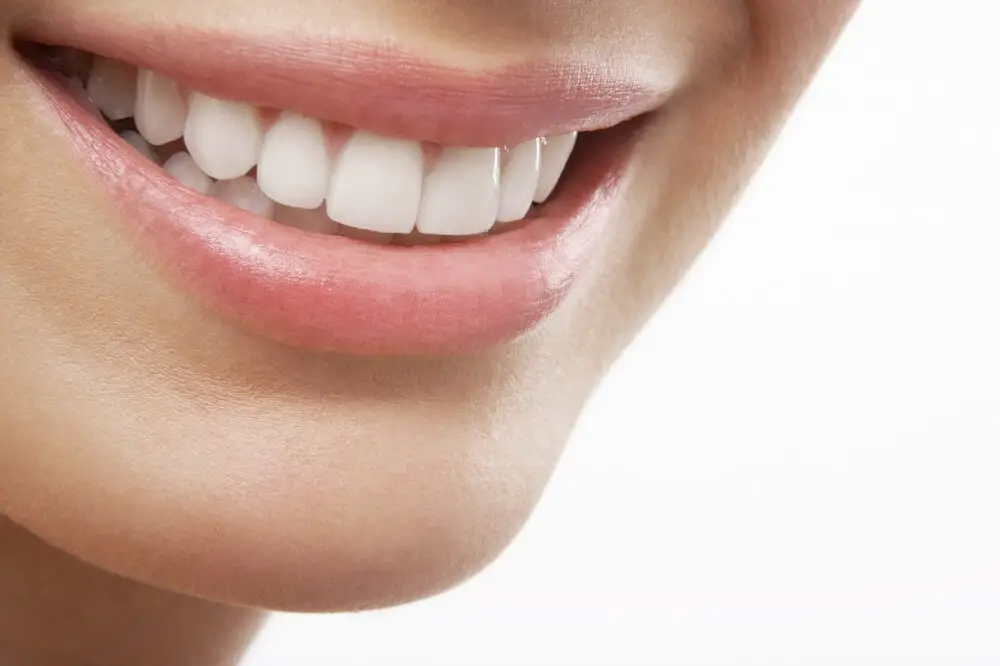
After undergoing wisdom teeth removal surgery, it is essential to have a soft food diet to avoid damaging the surgical site and promote proper healing. Soft foods are gentle on the mouth and ensure that you get enough nutrients to maintain your health. Some of the best soft foods to consume after wisdom teeth removal include smoothies, soups, yogurt, mashed potatoes, and oatmeal. Smoothies are a great option as they are easy to swallow and packed with nutrients. You can make smoothies with different fruits, vegetables, and yogurt or milk to get a variety of flavors. Soups are also ideal for those who have undergone wisdom teeth removal as they are easy to digest and can be prepared with various vegetables and meats. Yogurt is another excellent soft food option that is rich in protein and calcium, which are essential for bone and tissue repair. Mashed potatoes are also an excellent soft food to consume after wisdom teeth removal as they are easy to chew and swallow. Finally, oatmeal is a perfect breakfast meal that is gentle on the mouth and provides essential nutrients to aid in the healing process.
During the initial healing phase after wisdom teeth removal, it is important to consume soft foods that are easy to chew and won’t cause any discomfort or damage to the surgical site. Soft foods that are highly recommended include mashed potatoes, scrambled eggs, smoothies, yogurt, oatmeal, soup, and pudding. These foods are not only easy to eat but also rich in nutrients that promote healing and prevent infection. It is important to avoid hard, crunchy, or sticky foods during the first few days after surgery to prevent any complications or pain. By choosing the right soft foods, you can ensure a smooth and quick recovery after your wisdom teeth removal surgery.
After wisdom teeth removal, it is recommended to eat foods that are soft, cool, and easy to chew. Soft foods such as mashed potatoes, scrambled eggs, and oatmeal are ideal because they do not require a lot of chewing and are gentle on the healing gums. Cold foods like smoothies, yogurt, and ice cream can also help reduce swelling and pain. It is important to avoid hot or spicy foods as they can increase inflammation and irritate the wound. Additionally, crunchy or chewy foods like nuts, popcorn, and raw vegetables should be avoided as they may get stuck in the extraction site and delay the healing process. By following these recommendations, you can ensure a speedy and comfortable recovery after wisdom teeth removal.
When it comes to preparing and consuming foods after wisdom teeth removal, there are a few tips to keep in mind. First, it’s important to stick to soft and easy-to-eat foods, such as mashed potatoes, yogurt, and soup. Avoid crunchy, chewy, or spicy foods that can irritate the surgical site. It’s also a good idea to avoid using a straw or smoking, as the suction can dislodge the blood clot and delay healing. Additionally, be sure to rinse your mouth gently with salt water after eating to help keep the surgical site clean and reduce the risk of infection. By following these tips, you can ensure a smoother and more comfortable recovery after wisdom teeth removal.
Transitioning to Solid Foods

Transitioning to solid foods after wisdom teeth removal can be a daunting task, but it’s important to do it gradually and with care. After the first few days of only consuming soft foods like soups, smoothies and mashed potatoes, it’s time to start introducing solid foods back into your diet. Start with softer solid foods like well-cooked vegetables, scrambled eggs, and fish. Avoid anything too crunchy or hard, like chips or nuts, as they can damage the extraction site and cause pain or infection. Make sure to chew your food slowly and carefully, and avoid using straws or smoking, as the sucking motion can dislodge the blood clot and delay the healing process. It’s also important to keep in mind that everyone’s healing process is different, and some may take longer to be able to tolerate solid foods than others. Listen to your body and don’t push yourself too hard. If you experience any pain or discomfort while eating, take a break and try again later. Gradually increase the texture and difficulty of the foods you eat, and don’t forget to drink plenty of water to stay hydrated and promote healing. With patience and care, you’ll be back to eating your favorite foods in no time.
Transitioning to solid foods after wisdom teeth removal is a crucial step in the healing process. It is recommended to wait at least 24-48 hours after the surgery before introducing solid foods. During the initial healing phase, it is important to consume soft and easy-to-chew foods such as soups, smoothies, and mashed potatoes. As the healing progresses, you can slowly start introducing solid foods that are easy to chew and won’t cause discomfort or irritation in the surgical area. It is also important to avoid foods that are too hot or too cold, as extreme temperatures can cause pain and swelling. Taking small bites, chewing slowly and carefully, and avoiding hard and crunchy foods are some key tips to keep in mind when transitioning to solid foods after wisdom teeth removal.
Introducing solid foods slowly and carefully is crucial after wisdom teeth removal to ensure a smooth and quick recovery process. Eating hard or crunchy foods too soon can cause irritation or even damage to the surgical area, leading to complications and delays in healing. It’s important to stick to soft and easily digestible foods for the first few days, gradually introducing more solid foods as the healing progresses. Additionally, chewing on one side of the mouth and avoiding foods that require a lot of chewing can help prevent discomfort and promote faster healing. By following these guidelines and being patient in reintroducing solid foods, patients can minimize the risk of complications and enjoy a speedy and uncomplicated recovery.
Choosing the right foods after wisdom teeth removal is crucial to promote healing and avoid any potential complications. It’s important to opt for soft, easy-to-chew foods that are gentle on the surgical site, such as yogurt, scrambled eggs, mashed potatoes, and soup. Avoid crunchy, chewy, or sticky foods that can get stuck in the extraction site or dislodge the blood clot, such as nuts, seeds, popcorn, and gum. Additionally, it’s essential to stay hydrated by drinking plenty of water and avoid alcohol, smoking, and drinking through a straw, as these activities can delay the healing process and increase the risk of infection. By following these tips, you can ensure a smooth recovery and get back to eating your favorite foods in no time.
Foods to Avoid After Wisdom Teeth Removal
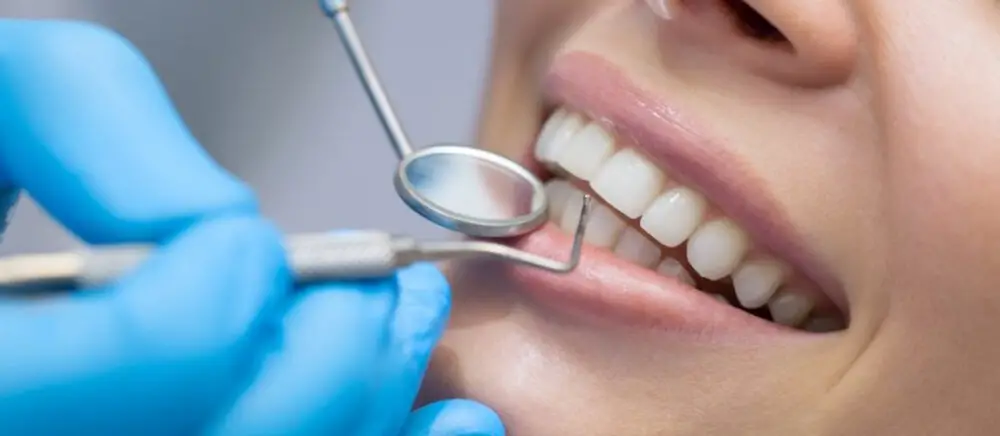
After wisdom teeth removal, it’s important to avoid certain types of food that can hinder the healing process and cause discomfort. Hard and crunchy foods, such as chips and nuts, should be avoided as they can irritate the surgical site and possibly dislodge the blood clot that forms. This can lead to a painful condition called dry socket, which can delay the healing process. Sticky and chewy foods, such as caramel and gum, should also be avoided as they can get stuck in the surgical site and interfere with the healing process. Spicy and acidic foods, such as hot sauce and citrus fruits, can also cause irritation and discomfort, so it’s best to avoid them until the surgical site has healed. Instead, opt for soft and easy-to-chew foods that are gentle on the surgical site. Examples include mashed potatoes, scrambled eggs, smoothies, and soups. It’s also important to stay hydrated by drinking plenty of water and other fluids. Avoid using straws or spitting forcefully as this can also dislodge the blood clot and cause dry socket. Following these guidelines can help ensure a speedy and complication-free recovery after wisdom teeth removal.
During the healing process after wisdom teeth removal, it is essential to pay attention to the foods you consume to avoid any complications that may arise. Some foods are harder to chew, which can damage the surgical site, leading to pain and discomfort. Others are acidic, spicy, or have small particles that can get stuck in the wound, causing infection. Therefore, it is recommended to avoid foods such as nuts, chips, popcorn, and seeds, which can get lodged in the socket. Additionally, acidic foods like oranges, lemons, and tomatoes, as well as spicy foods like hot sauce and chili, can cause irritation and pain. Lastly, carbonated and alcoholic beverages should be avoided as they can delay the healing process. By avoiding these foods, patients can ensure a smooth recovery process and prevent any complications.
After wisdom teeth removal, certain foods can be problematic due to their texture, temperature, and composition. Hard and crunchy foods such as nuts, chips, and popcorn can dislodge the blood clot that forms in the socket, leading to a painful condition called dry socket. Spicy and acidic foods like hot sauce and citrus fruits can irritate the sensitive tissues in the mouth and delay the healing process. Carbonated beverages and alcohol can also interfere with the blood clot and cause further bleeding. Additionally, foods that require excessive chewing or sucking like gum, hard candy, and straws can put pressure on the surgical site and disrupt the healing process. It’s best to stick to soft and non-acidic foods like yogurt, mashed potatoes, and scrambled eggs to ensure a smooth recovery.
When searching for alternative foods that are safe to eat after wisdom teeth removal, there are a few tips to keep in mind. First and foremost, choose soft, easy-to-chew foods that won’t irritate the surgical site. Some great options include mashed potatoes, scrambled eggs, smoothies, and soups. Be sure to avoid spicy, crunchy, or hard foods that could cause discomfort or damage to the healing area. It’s also important to maintain good oral hygiene by practicing gentle brushing and rinsing with saltwater to prevent infection. Finally, listen to your body and take things slow, gradually reintroducing harder foods as your mouth begins to heal.
The article \Reddit’s Guide When to Eat Solid Food After Wisdom Teeth Removal\ provides insightful tips on when to start eating solid foods after undergoing wisdom teeth extraction surgery. The author emphasized the importance of following the dentist’s instructions on post-operative care to speed up the healing process and avoid complications. They also recommended consuming soft and nutritious foods, such as soups, smoothies, and mashed potatoes, during the first few days after the surgery. Additionally, the author advised avoiding crunchy, sticky, and spicy foods, smoking, and using straws, as they can interfere with the healing process. Overall, the article provides helpful advice for those who have recently undergone wisdom teeth extraction, ensuring a speedy recovery and a healthy oral cavity.
Following postoperative instructions is crucial for a quick and successful recovery after wisdom teeth removal. These instructions are provided to patients to prevent complications and ensure a smooth healing process. Failure to follow these instructions can lead to pain, infection, bleeding, and swelling. Postoperative instructions may include avoiding certain foods, maintaining good oral hygiene, taking prescribed medications, and attending follow-up appointments. It is essential to follow these instructions to the letter to reduce the risk of complications and facilitate a speedy recovery. Patients who follow their postoperative instructions are more likely to heal quickly and return to their normal activities sooner.
After wisdom teeth removal, it’s crucial to follow the aftercare instructions provided by your dental professional. While Reddit can be a great resource for advice, it’s important to remember that every individual’s recovery process may differ. If you have any concerns or questions about your healing progress, it’s highly recommended to seek further advice from a dental professional. They can provide personalized recommendations and ensure that your recovery is going smoothly. Don’t hesitate to reach out to your dentist or oral surgeon for any additional support you may need during this healing period.
Conclusion

In conclusion, following Reddit’s guide on when to eat solid food after wisdom teeth removal is an essential step for a successful and comfortable recovery. It is crucial to avoid any food that can cause irritation or harm to the healing process, such as spicy or crunchy foods. Instead, focusing on soft and nutrient-rich options can aid in the healing process and prevent any complications. While it may seem challenging to stick to a soft food diet for a few weeks, it is crucial to prioritize your health and well-being. By following these guidelines, you can ensure a speedy and smooth recovery and return to your regular diet in no time.
